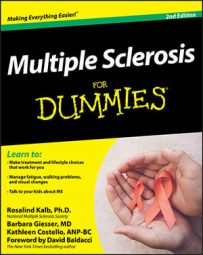Each disease-modifying therapy (DMT) used in the treatment of multiple sclerosis (MS) has its advantages and disadvantages and each comes with potential benefits and risks. The medications that have the potential to offer greater benefits are also the ones that pose more significant risks As a result, the decisions you make with your healthcare team will be increasingly complex as more treatment options become available.
The words benefit and risk mean different things to different people. For example, you may be surprised to discover that you, your doctor, and your family members interpret the words very differently. Each of you may anticipate different kinds of benefits from a given treatment, and you may each vary significantly in the degree of risk that feels comfortable or reasonable.
For example, a person whose MS is well controlled and manageable may not want to rock the boat or take on any significant risks at this time, while someone who feels that life has become little more than a losing battle with MS may be eager to risk anything and everything for some relief.
Physicians tend to weigh risks according to the data from clinical trials and their clinical experience with a particular medication. Furthermore, family members have their own set of worries about your health and safety.
To help you prepare for complex conversations about treatment choices, try the following strategies:
Work with your healthcare team to identify the best options for you. If your doctor doesn’t seem to have enough time, patience, or experience with the various treatment options to have this conversation with you, look for another doctor.
Gather as much information as you can about the treatment options. The following suggestions can help you get started:
Read carefully the information provided with each medication.
Make a list of follow-up questions to ask your doctor and call the National MS Society at (800) 344-4867 for additional information.
Check out the new Emerging Therapies Collaborative website. MS advocacy organizations have joined with other MS organizations to create information about the new MS treatments for people affected by MS and their healthcare providers. The goal of the website is to help clinicians and patients communicate with each other more clearly and effectively about treatment choices.
Keep both ears open — not just the one that hears what it wants to hear. None of these medications is perfect or free from potential risks, so keep your wishful thinking under control.
Think through the possible negative outcomes as well as the positive ones. If a treatment poses a small risk of severe complications, make sure you allow yourself to think about how you and your family members would handle such a complication.
Give yourself a clear sense of what the odds mean. For example, does a risk of “one in a thousand” sound like a big risk to you or a small one? The National Safety Council offers some statistics that may help you answer that question:
Lifetime risk of dying in a car crash: 1 in 83
Lifetime risk of being murdered: 1 in 210
Lifetime risk of dying while crossing the street: 1 in 625
Lifetime risk of dying in a plane crash: 1 in 5,000
Make sure that you and your loved ones are on the same page — or at least have taken the time to talk about your personal levels of risk tolerance and to share any differences of opinion.
Getting a handle on the available disease-modifying therapies is no easy task, but several resources are available to help you. You can contact the National MS Society at (800) FIGHT-MS (800-344-4867) to ask questions about any of the approved medications, as well as those currently being evaluated in clinical trials.
In addition, the organization offers the following resources to assist you in finding out about the medications and discussing them with your healthcare team:
The MS Disease Modifying Medications: This handy pocket-size brochure gives you a detailed overview of the disease-modifying therapies in MS. It’s updated regularly to include any new information that becomes available about each medication.
Information about ongoing clinical trials and clinical trial participation is available at the National MS Society website.

